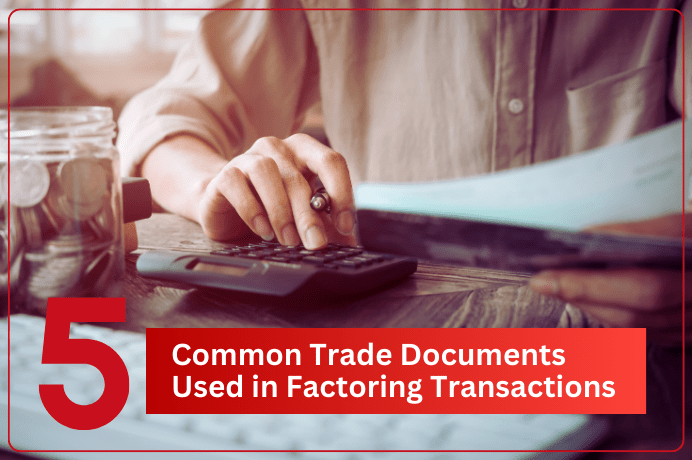Common Trade Documents Used in Factoring Transactions
Learn about the 5 trade documents commonly used in factoring transactions, including invoices, billing notes, purchase orders, contracts, and certificates of completion. Understand their importance and usage in business.

Introduction:
"Factoring" is a short-term credit arrangement that allows businesses to generate cash flow quickly, using trade documents in the process. This service is provided by "factoring companies" or "factors." In this article, we will mention the 5 trade documents frequently used in factoring transactions, explaining their details, significance, and key considerations. This article will help business owners efficiently review the necessary documents before engaging in transactions with factors, ensuring swift business operations and effective planning.
Learn about the 5 trade documents commonly used in factoring transactions.
In factoring transactions, trade documents serve as critical financial records that can verify sales transactions between sellers and buyers. The commonly used trade documents in factoring transactions are as follows:

1. Invoice
An invoice is a document issued by the seller of goods or services to notify the buyer about the details of the items or services sold. It includes essential information such as the names of the seller and the buyer, product or service details, pricing, the total amount, and the payment due date. Invoices are crucial documents that confirm the sales transaction between the seller and the buyer and are typically prepared after the seller has delivered the goods or services to the buyer.
2. Billing Note
A billing note, also known as a billing statement, is a document issued by the seller to inform the buyer of all the details contained in the invoice. It specifies the amount owed to the seller and follows the billing cycle agreed upon, such as monthly billing or billing cycles defined by the buyer, like the 1st-15th and 16th-31st of the month. Billing notes are important for confirming the sales transaction and informing the buyer of the payment terms.
3. Purchase Order (PO)
A purchase order is a document prepared by the buyer to inform their need to purchase goods or services from the seller or supplier. It is the most crucial document in the buying and selling process and serves as a record of the buyer's requirements. Purchase orders can be used to confirm agreements and resolve disputes between the buyer and seller.
4. Contract
A contract is a document that outlines the agreement between the seller (contractor) and the buyer (client) regarding the details of a specific project or job. It includes information about the scope of work, payment conditions, delivery timelines, and any penalties. A valid contract requires signatures from both the contractor and the client.
5. Certificate of Completion
A certificate of completion is a document issued by the seller (contractor) to inform the buyer (client) that the agreed-upon work has been successfully completed within the specified time frame. This document is used as supporting evidence for invoicing and confirms that the seller has fulfilled the contract's obligations accurately and on time.
In Conclusion:
All five types of trade documents are crucial for factoring transactions, as they are used to confirm sales transactions between sellers and buyers. They are often used in conjunction with factoring companies. Therefore, it is essential to prepare accurate and complete trade documents to allow factoring companies to quickly and accurately verify information and ensure that sellers receive payment according to the agreed terms, effectively managing cash flow.